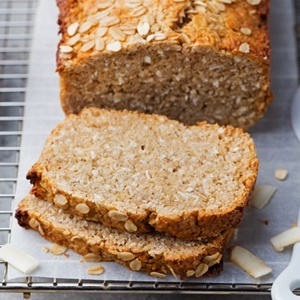
Most people believe that wholewheat bread is better for you than white bread, but a small, new study suggests that maxim may not hold true for everyone. White bread is however associated with the risk of becoming overweight or obese.
Researchers looked at how quickly blood sugar levels rose (glycaemic response) after eating either white bread or sourdough-leavened wholewheat bread. The researchers found that the response seemed to vary by person, and that some people didn't have a bad glycaemic response to white bread.
Responses may vary
"Our study suggests that, in terms of glycaemic responses, different people respond differently to even the same meal," explained study author Eran Segal, from the Weitzman Institute of Science in Rehovot in Israel.
"In the context of white bread, this means that some people respond badly to white bread and should probably avoid it, while others have a healthy response to it, given what we measured," Segal said.
The researchers theorised that differences in the gut microbiome (the natural bacteria living in a person's intestine) may explain why people respond differently to different breads. The researchers added that they were able to predict what a person's glycaemic response would be to a particular bread based on the makeup of their microbiome.
The Heart and Stroke Foundation South Africa along with a number of groups recommend eating whole grain foods instead of processed white foods as part of their dietary guidelines to healthy eating.
White bread vs. wholewheat bread
The study, which was published in the journal Cell Metabolism, included 20 people from Israel. They were between 27 and 66 years old. Eleven were female.
Each volunteer spent a week eating white bread and a separate week eating artisanal sourdough-leavened wholewheat bread.
They ate bread first thing in the morning. Half the time they were allowed butter on their bread. They couldn't eat anything else beginning the night before, and then for two hours after eating the bread. They also weren't allowed to exercise for two hours after eating, because all of these things can alter the glycaemic response.
Common beliefs challenged
Across the groups, the researchers found a similar response to the breads when averaged together. There were no significant overall differences based solely on the bread and glycaemic response. The researchers also said there didn't seem to be a difference in the gut microbiota based on which bread was eaten.
"Our study challenges the common belief that types of food that are considered healthy are indeed healthy. We know that people are different in their genetic makeup and lifestyle, and here we show that people have rather stable and person-specific microbiomes," said Avraham Levy, one of the study's researchers. He's also from the Weitzman Institute.
Read more:




 Publications
Publications
 Partners
Partners














